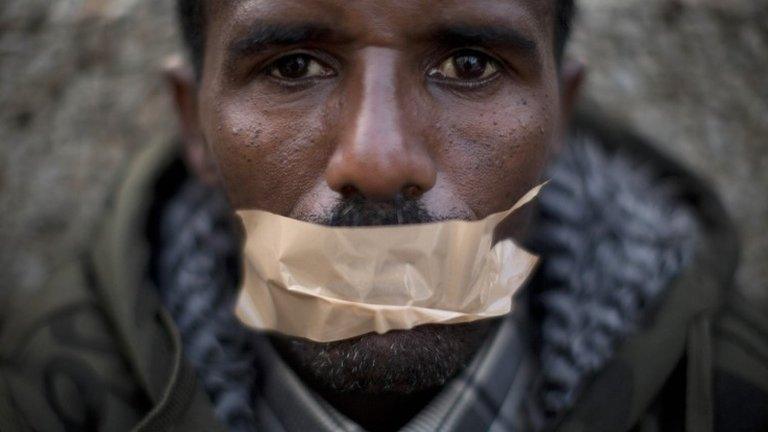Eritrean migrants face new asylum battle in EU
- Published
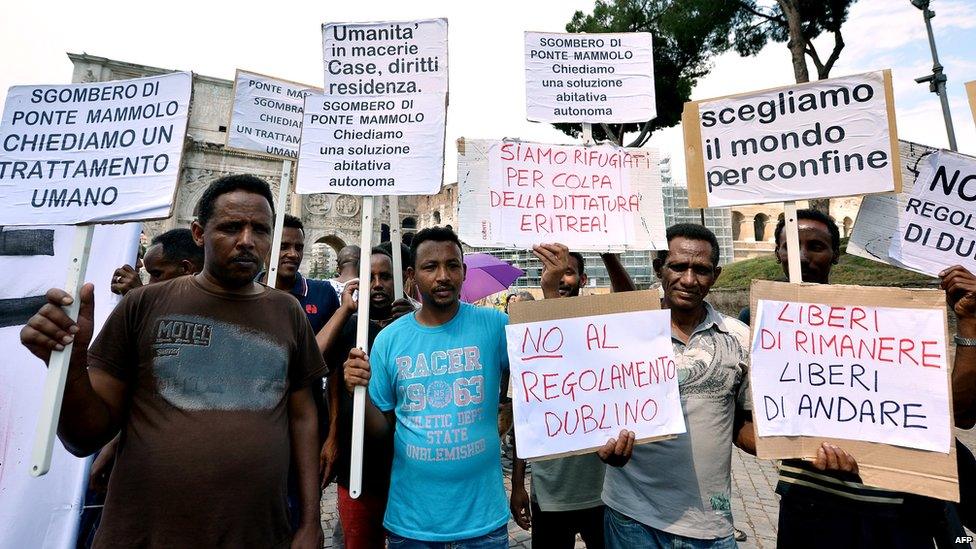
Eritrean migrants in Rome press for rights as refugees who fled from "a dictatorship"
The exodus from Eritrea is complicating Europe's efforts to tackle the Mediterranean migrant crisis.
Eritreans - struggling ashore or picked up at sea - form the second-largest group of migrants risking their lives to reach Italy, after Syrians.
Eritrea, in the Horn of Africa, is not in the grip of war or famine. Yet around 5,000 Eritreans flee every month. Why?
A damning United Nations Commission of Inquiry report, external blames the country's "gross human rights violations".
"Faced with a seemingly hopeless situation they feel powerless to change, hundreds of thousands of Eritreans are fleeing their country," the UN says.
Rights abuses
Indefinite national service is one of the main drivers, according to the report. Everyone from the age of 17 can be conscripted into the military, and it continues for years. Some conscripts have served for more than 20 years.
UN investigators say "slavery-like practices" are widespread, with conscripts subjected to hard labour, with poor food, bad hygiene and wretched pay.
The Eritrean government has dismissed the UN's findings as "totally unfounded and devoid of all merit", external.
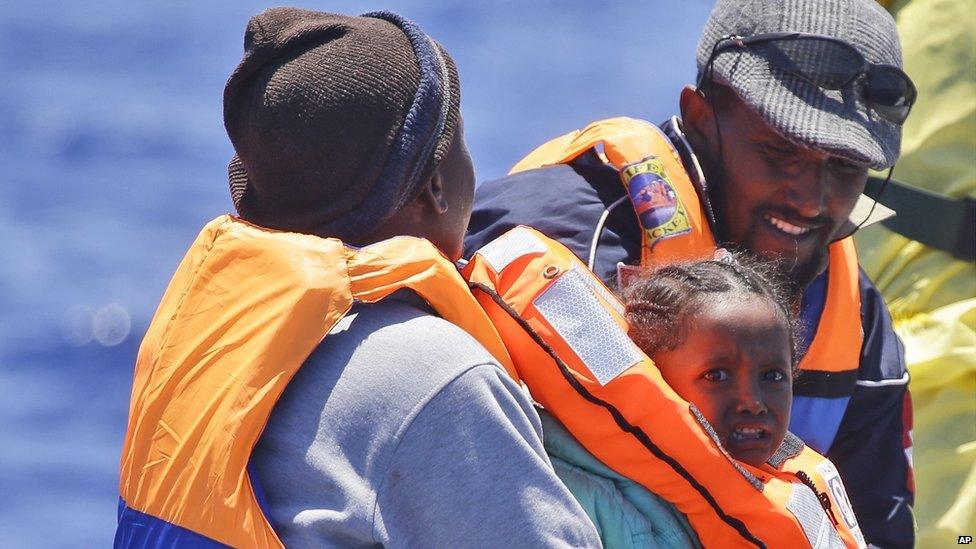
Eritrean migrants picked up in the Mediterranean include families and many lone children
Yet for most Eritreans, it is impossible to get an exit visa to leave the country legally. And by fleeing conscription they risk being arrested as "traitors" if they return.
The EU cannot send Syrian refugees back to their war-torn country.
And Eritreans' asylum claims have generally been treated as legitimate in the EU.
But despite the abuses in Eritrea, documented by the UN and human rights groups, some countries are now considering sending Eritreans home.
Policy shift
A Danish Immigration Service report, external, from November 2014, suggested that Eritrea's policy towards returnees had become more lenient. It was based on a fact-finding mission, but did not name its sources.
It quoted the Eritrean Foreign Ministry as saying Eritreans abroad could now "regularise their relationship with the authorities" by paying a 2% income tax at an Eritrean embassy and signing an apology letter.
"This has been done by a number of people and they have returned to Eritrea without any complications," the report said, quoting a ministry statement.
But the ministry gave "no specific information" about whether Eritrea's national service would be changed.
The report was criticised by Danish media and Human Rights Watch, external, which described it as "more like a political effort to stem migration than an honest assessment of Eritrea's human rights situation".
The Norwegian government sent its own assessment team to Eritrea. It was led by Norway's Deputy Minister of Justice Joeran Kellmyr.
Speaking to the BBC, Mr Kellmyr said he had received an assurance from Eritrea's foreign minister that national service would be reduced to 18 months.
"It's important for everyone," said Mr Kellmyr.
"If national service is reduced, according to human rights standards, this could mean that a lot of Eritrean people don't any more have the right to seek asylum."
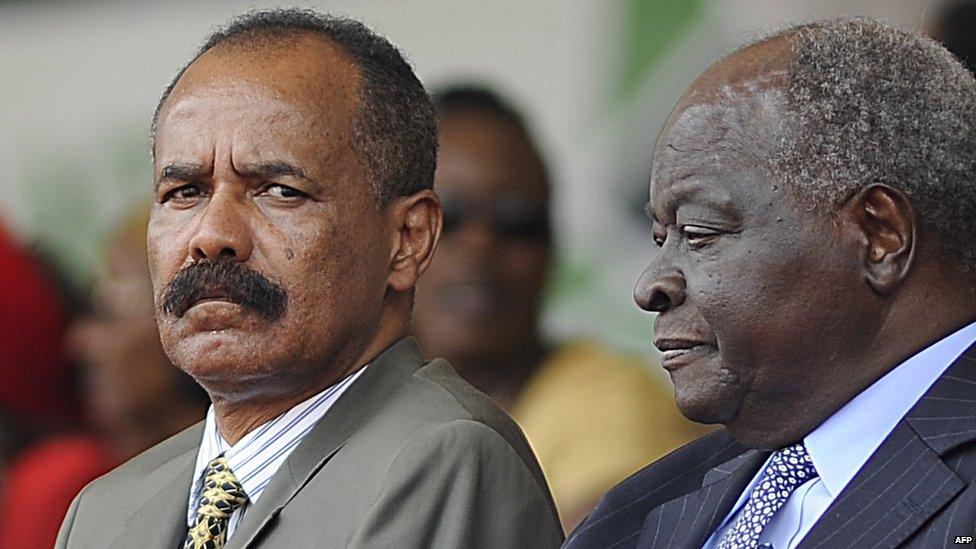
Eritrean President Isaias Afewerki (left) rules with an iron fist
In December UK officials also visited Eritrea to discuss the migration problem.
And in March this year a new UK policy , externaltowards Eritrean asylum-seekers was announced.
New guidelines stated that conscription would no longer be automatic grounds for granting asylum, since national service would no longer continue indefinitely.
But an Eritrean migration expert, Prof Gaim Kibreab, said there was "no evidence" for the UK guidelines' assertion that "national service is generally between 18 months and four years".

Eritrea - key facts
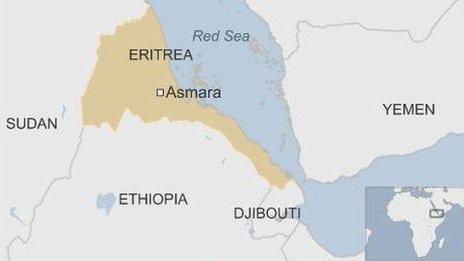
Nation of six million on Red Sea - one of Africa's poorest countries
One-party state - no functioning constitution or independent media
Former Italian colony, later formed loose federation with Ethiopia
1962 - Ethiopian Emperor Haile Selassie dissolved Eritrean parliament, seized Eritrea
Eritrean separatists - the Eritrean People's Liberation Front - fought guerrilla war until 1991, when they captured capital Asmara
Eritrea voted for independence in 1993
May 1998 border dispute with Ethiopia led to two-year war costing 100,000 lives
Still no peace settlement - thousands of troops face each other along 1,000km (620-mile) border

Controversial tax
In 2011 the UN Security Council condemned Eritrea's collection of a 2% tax on the incomes of all of its citizens living abroad - the so-called "diaspora tax".
UN Resolution 2023, external accused Eritrea of using the tax to fund armed opposition groups in the Horn of Africa, including the Islamist al-Shabab in Somalia.
That was denied by the Eritrean government, but many Western nations backed a UN arms embargo and other sanctions against Eritrea. They also suspect Eritrea of using mining revenue to fund Horn of Africa rebels.
The UK government told Eritrea that the "use of coercion or other illicit means to collect the [diaspora] tax in the UK must cease".
Yet Eritreans in the UK say they are still being pressurised to pay up.
Eritrean opposition activist Selam Kidane, based in London, said "they examine your pay slips and calculate how much your 2% tax comes to, but the actual payment is made in Asmara".
She said the payment was necessary before any official transaction could be made in Eritrea - whether it was selling a parent's home or getting a visa. "It is clear coercion," she said.
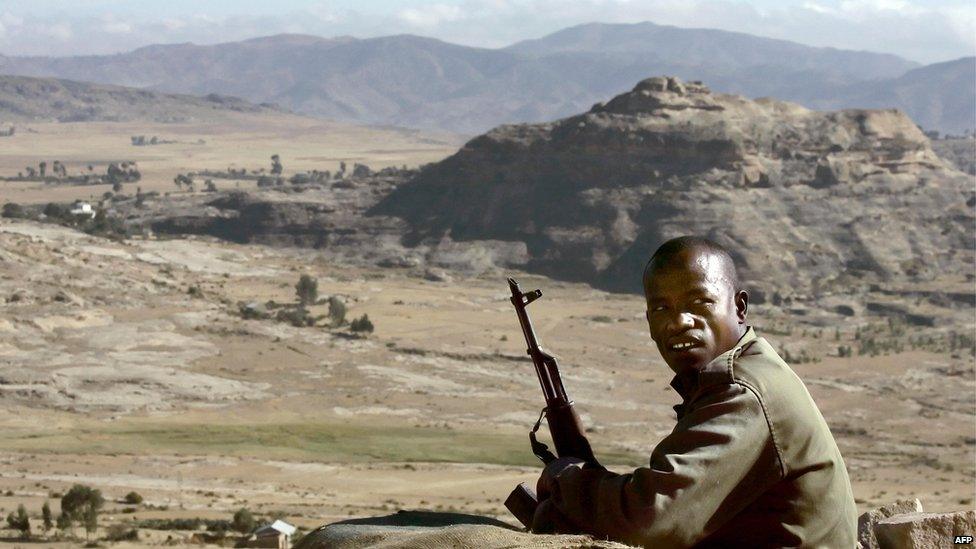
The Ethiopia-Eritrea border is tense and militarised after many years of fighting
The UK Home Office has decided that Eritreans are not at risk if they refuse to comply with a "reasonable request to pay diaspora tax". So their fear of the consequences of not paying the tax cannot be grounds for UK protection.
"Previous country guidance indicated that those who had left illegally were at risk on return to Eritrea.
"However, up-to-date information from inside Eritrea suggests this is no longer the case," the UK Home Office says.
The Eritrean government maintains those who leave are economic migrants and says Eritrean "victims of human trafficking" who return home will not face punishment., external
Yet the recent UN report spoke of some Eritrean returnees suffering detention for eight months to three years and maltreatment "to the point of torture".
Would more aid for impoverished Eritrea help to stem the exodus, by boosting growth and making life more bearable?
That seems unlikely, as many want to escape conscription and human rights abuses.
Unless ordinary men and women can be convinced that they will not have to face years in the grim trenches on the desolate border with Ethiopia they are likely to continue to risk everything and flee the country.
- Published13 March 2015
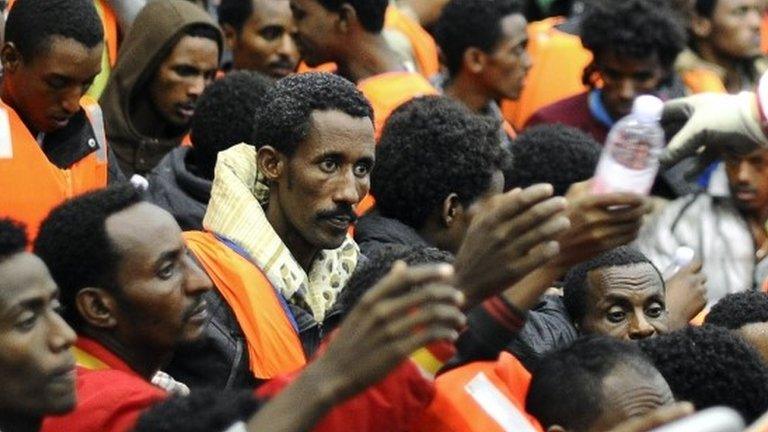
- Published18 April 2023
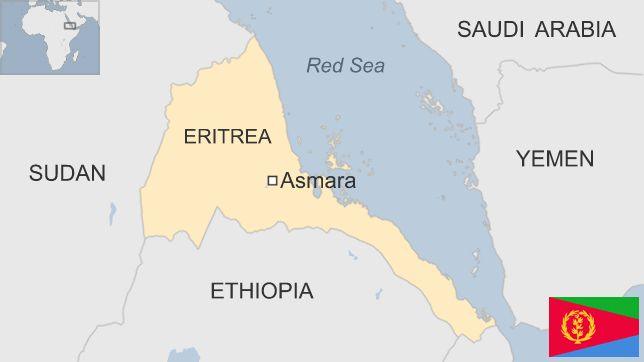
- Published3 March 2016
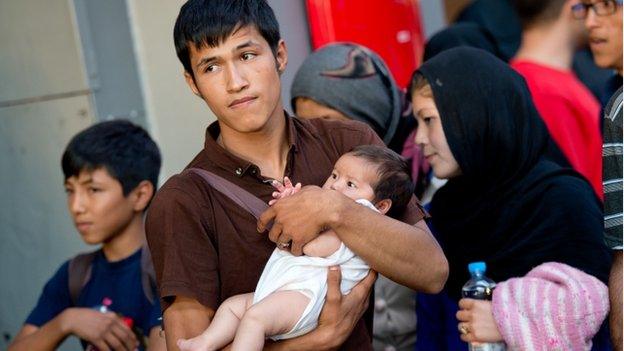
- Published23 February 2015
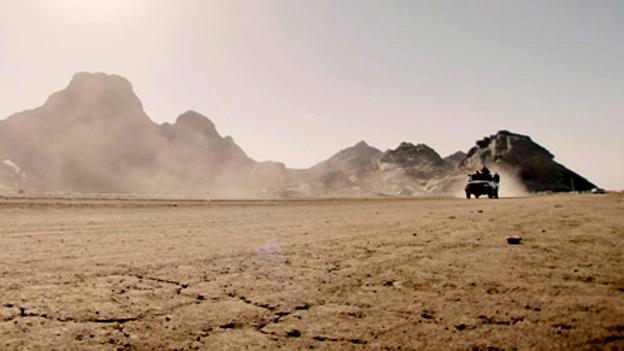
- Published26 September 2014
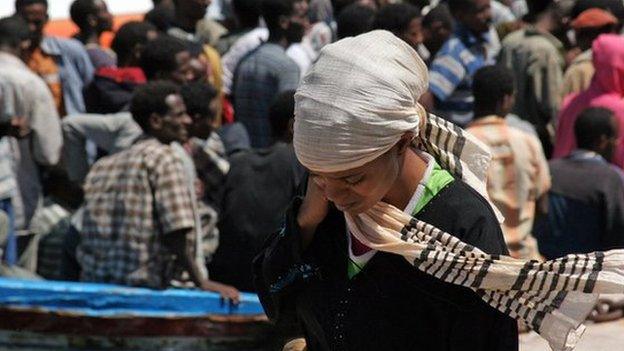
- Published5 October 2013
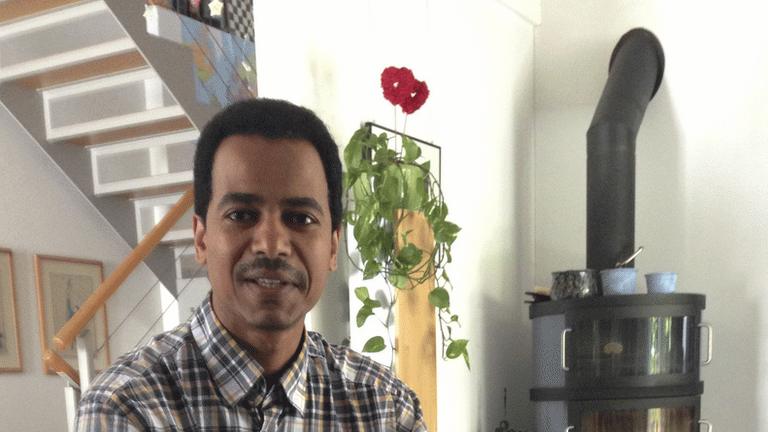
- Published9 September 2014
